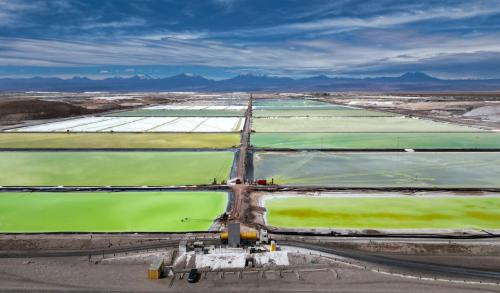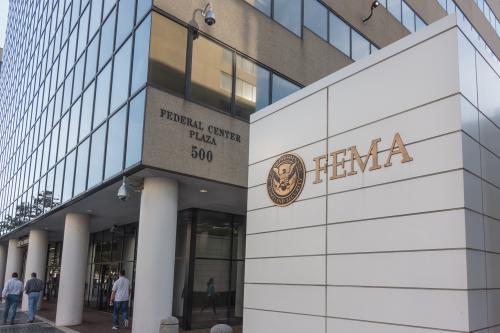Lesotho’s Prime Minister Returns to Maseru after Political Unrest
Over the weekend, the prime minister of Lesotho, Thomas Thabane, fled the capital, Maseru, for South Africa after the military surrounded his residence and overran several police stations in an attempted coup. One police officer was reportedly killed in the gunfire on Saturday, August 30, and several more were wounded. Thabane accused Deputy Prime Minister Mothetjoa Metsing of orchestrating the coup over political tensions that have escalated since Thabane suspended parliament in June.
The army denied that the military’s activities constituted a coup, but claimed that it was working to subdue elements of the police force, which were arming political radicals for an upcoming anti-government protest. According to observers, the police force is generally regarded to be loyal to Thabane while Metsing is supported by the army. The regional political body, the Southern African Development Community (SADC), responded to the military’s actions by holding an emergency meeting on Monday. Following the meetings with SADC and South Africa’s President Jacob Zuma, Thabane and the coalition parties agreed to reopen the parliament by September 19, 2014. On Wednesday, Thabane returned to Maseru while being escorted by South African police forces, who still remain with him as of Friday, September 5.
Lesotho is a tiny landlocked country completely surrounded by South Africa and has experienced multiple coups since its independence in 1966. It is also a large beneficiary of the U.S. African Growth and Opportunity Act (AGOA) trade preferences, as its textile industry has grown “from a handful of factories operating in the 1990s” to “40 textile producers employing some 40,000 people—the largest private sector employer in the country,” according to the Financial Times. AGOA beneficiary status, however, is tied to a country’s ongoing compliance with eligibility requirements, which are linked to good governance and democratic principles. As recently noted by Zenia Lewis and Amadou Sy in an Africa in Focus blog, beneficiary status was revoked from Madagascar due to a coup in 2009 (and reinstated in 2014 after democratic elections were held in late 2013) as well as from Swaziland—another tiny country within South Africa—earlier this year due to excessive force and government crackdowns on peaceful protestors. Now, the U.S. has expressed deep concerns over the violence between security forces in Lesotho, which may call into question its AGOA status if left unresolved.
Estimates of Ugandan Commercial Oil Reserves Are Revised
Uganda’s Energy Ministry announced on Friday that new estimates of the country’s oil reserves suggest that Uganda has 6.5 billion barrels of oil, nearly double the original 3.5 billion barrels estimated two years ago. The majority of these commercial oil deposits are located in the Albertine Rift Basin near Uganda’s border with the Democratic Republic of the Congo, where oil was first discovered in 2006. It is anticipated that 1.4 billion barrels of oil will be recoverable although this number could grow since only 40 percent of the basin has been explored to date. Uganda is expected to begin its crude oil production in 2017, and it will continue for 30 years or more, according to Ernest Rubondo, the commissioner for the Petroleum Exploration and Production Department (PEPD), provided that new resources are discovered in the basin’s remaining unexplored acreage. As Uganda prepares for the economic, social and environmental transformations it will experience from the development of its oil sector, some observers have called for the government to ensure transparency of oil revenues and provide assistance to people displaced by energy infrastructure development.
Sudan, Ethiopia and Egypt to Conduct Research on the Renaissance Dam
In other news, Egypt, Ethiopia and Sudan concluded a fourth round of tripartite talks regarding the controversial Grand Ethiopian Renaissance Dam (GERD) last week. The GERD is an Ethiopian hydropower dam that, upon its completion in 2017, is expected to be the largest in Africa, capable of producing 6,000 MW of electricity.
The construction of the GERD, which is now 35 percent complete, has flared tensions between Egypt and Ethiopia since May of last year, when Ethiopia began diverting the Blue Nile River to fill the GERD’s reservoir. Egypt has protested the diversion of the Blue Nile based on two treaties signed in 1929 and 1959 which, it claims, guarantee its rights to 87 percent of the Nile’s flow. According to the Sudan Tribune, Egypt considers the project a violation of its river rights since “the construction of the 4.3 billion dollar dam project will diminish its water share which is a source of potable water to millions of people of the desert nation.” Other Nile Basin countries, however, have rejected Egypt’s claims to the river flow, and in 2010 signed a deal to enable construction of projects within the basin without consent from Egypt, further fueling the dispute.
As a result of the tripartite talks, the water ministers of the three countries agreed to hire independent experts to perform studies on the socio-environmental effects of the GERD over the next six months and then implement their findings.



Commentary
Africa in the News: Political Uncertainty in Lesotho, Ugandan Oil Reserve Estimates Double, and Renaissance Dam Tripartite Calls for Additional Research
September 5, 2014